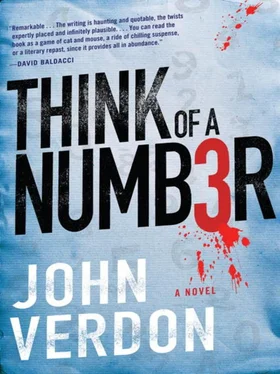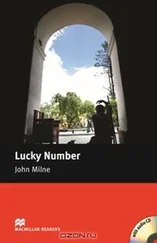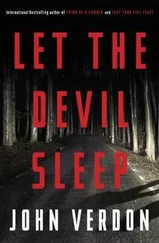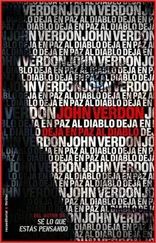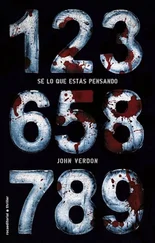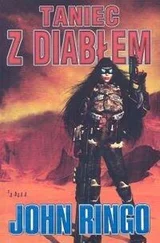The big woman’s eyes filled with tears, and they ran down her round, girlish cheeks. “I had to save it.”
“Save it?”
“The policemen would have taken it away.”
“Taken what away?”
“They took everything else-the clothes he was wearing, his watch, his wallet, the newspaper he was reading, the chair he was sitting in, the rug, his eyeglasses, the glass he was drinking… I mean, they took everything.”
“Not quite everything-right, Mrs. Rudden? They didn’t take what you saved.”
“I couldn’t let them. It was a gift. It was Albert’s last gift to me.”
“May I see the gift?”
“You already saw it. There-behind you.”
Gurney swiveled around and followed her gaze to the vase of pink flowers in the middle of the table-or what, upon closer inspection, turned out to be a vase with one pink plastic flower whose bloom was so large and showy it gave the initial impression of a bouquet.
“Albert gave you that flower?”
“That was his intention,” she said after a hesitation.
“He didn’t actually give it to you?”
“He couldn’t, could he?”
“Do you mean because he was killed?”
“I know he got it for me.”
“This could be very important, Mrs. Rudden,” said Gurney softly. “Please tell me exactly what you found and what you did.”
“When Jonah and I came home from Revelation Hall, we heard the television, and I didn’t want to disturb Albert. Albert loved television. He didn’t like it if someone walked in front of him. So Jonah and I walked around to the back door that goes into the kitchen, rather than come in the front and have to walk in front of him. We sat in the kitchen, and Jonah had his bedtime Popsicle.”
“How long did you sit in the kitchen?”
“I couldn’t tell you that. We got to talking. Jonah is very deep.”
“Talking about what?”
“Jonah’s favorite subject-the tribulation of the End Times. It says in the Scriptures that in the End Times there will be tribulation. Jonah always asks if I believe that, and how much tribulation I believe there will be, and what kind of tribulation. We talk a lot about that.”
“So you talked about tribulation, and Jonah ate his Popsicle?”
“Like always.”
“Then what?”
“Then it was time for him to go to bed.”
“And?”
“And he went through the kitchen door into the living room to get to his bedroom, but it wasn’t five seconds before he was back in the kitchen, backing up like, and pointing at the living room. I tried to get him to say something, but all he would do was point. So I went in there myself. I mean, I came in here,” she said, looking around the room.
“What did you see?”
“Albert.”
Gurney waited for her to go on. When she didn’t, he prompted, “Albert was dead?”
“There was a lot of blood.”
“And the flower?”
“The flower was on the floor next to him. You see, he must have been holding it in his hand. He must have wanted to give it to me when I got home.”
“What did you do then?”
“Then? Oh. I went next door. We don’t have a phone. I think they called the police. Before the police came, I picked up the flower. It was for me,” she said with the sudden, raw insistence of a child. “It was a gift. I put it in our nicest vase.”
Stumbling into the light
Although it was time for lunch when they finally left the Rudden house, Gurney was in no mood for it. It wasn’t that he wasn’t hungry, and it wasn’t that Clamm hadn’t suggested a convenient place to eat. He was too frustrated, mostly with himself, to say yes to anything. As Clamm drove him back to the church parking lot where he’d left his car, they made a last halfhearted attempt to align the facts of the cases to see if there was anything at all that might connect them. The attempt led nowhere.
“Well,” said Clamm, straining to give the exercise a positive interpretation, “at least there’s no proof at this point that they’re not connected. The husband could have gotten mail the wife never saw, and it doesn’t look like the kind of marriage where there was much communication, so he might not have told her anything. And with whatever the hell she’s on, she wasn’t likely to notice any subtle emotional changes in him on her own. Might be worth having another talk with the kid. I know he’s as spacey as she is, but it’s possible he might remember something.”
“Sure,” said Gurney with zero conviction. “And you might want to see if Albert had a checking account, and if there’s a stub made out to anyone named Charybdis or Arybdis or Scylla. That’s a long shot, but at this point what the hell.”
* * *
On the drive home, the weather deteriorated further in a kind of morbid sympathy with Gurney’s frame of mind. The drizzle of the morning developed into a steady rain, reinforcing his dismal assessment of the trip. If there were any connections between the murders of Mark Mellery and Albert Rudden, beyond the large number and location of the stab wounds, they were not apparent. None of the distinctive features of the Peony crime scene were present at Flounder Beach-no tricky footprints, no lawn chair, no broken whiskey bottle, no poems-no sign of game playing at all. The victims appeared to have nothing in common. That a murderer would choose as his twin targets Mark Mellery and Albert Rudden made no sense.
These thoughts, along with the unpleasantness of driving in an increasing downpour, no doubt contributed to his strained expression as he entered the kitchen door of the old farmhouse, dripping.
“What happened to you?” asked Madeleine, looking up from the onion she was dicing.
“What’s that supposed to mean?”
She shrugged and made another slice through the onion.
The edginess of his reply hung in the air. After a moment he mumbled apologetically, “I had an exhausting day, a six-hour round-trip in the rain.”
“And?”
“And? And the whole damn thing was probably a dead end.”
“And?”
“Isn’t that enough?”
She shot him a disbelieving little smile.
“To give it an extra twist, it was the Bronx,” he added morosely. “There’s no human experience that the Bronx can’t make a little uglier.”
She began chopping the onion into tiny pieces. She spoke as if she were addressing the cutting board.
“You have two messages on the phone-your friend from Ithaca and your son.”
“Detailed messages, or just asking me to call back?”
“I didn’t pay that much attention.”
“By my ‘friend from Ithaca,’ do you mean Sonya Reynolds?”
“Are there others?”
“Other what?”
“Friends you have in Ithaca, yet to be announced.”
“I have no ‘friends’ at all in Ithaca. Sonya Reynolds is a business associate-and barely that. What did she want, anyway?”
“I told you, the message is on the phone.” Madeleine’s knife, which had been hovering above the pile of onion bits, sliced down through them with particular force.
“Jesus, watch your fingers!” The words erupted from him with more anger than concern.
With the sharp edge of the knife still pressed against the cutting board, she looked at him curiously. “So what really happened today?” she asked, rewinding the conversation to the point before it ran into the ditch.
“Frustration, I guess. I don’t know.” He went to the refrigerator and took out a bottle of Heineken, opened it, and set it on the table in the breakfast nook by the French doors. Then he took off his jacket, draped it over the back of one of the chairs, and sat down.
“You want to know what happened? I’ll tell you. At the request of an NYPD detective by the ridiculous name of Randy Clamm, I made a three-hour drive to a sad little house in the Bronx where an unemployed man had been stabbed in the throat.”
Читать дальше
